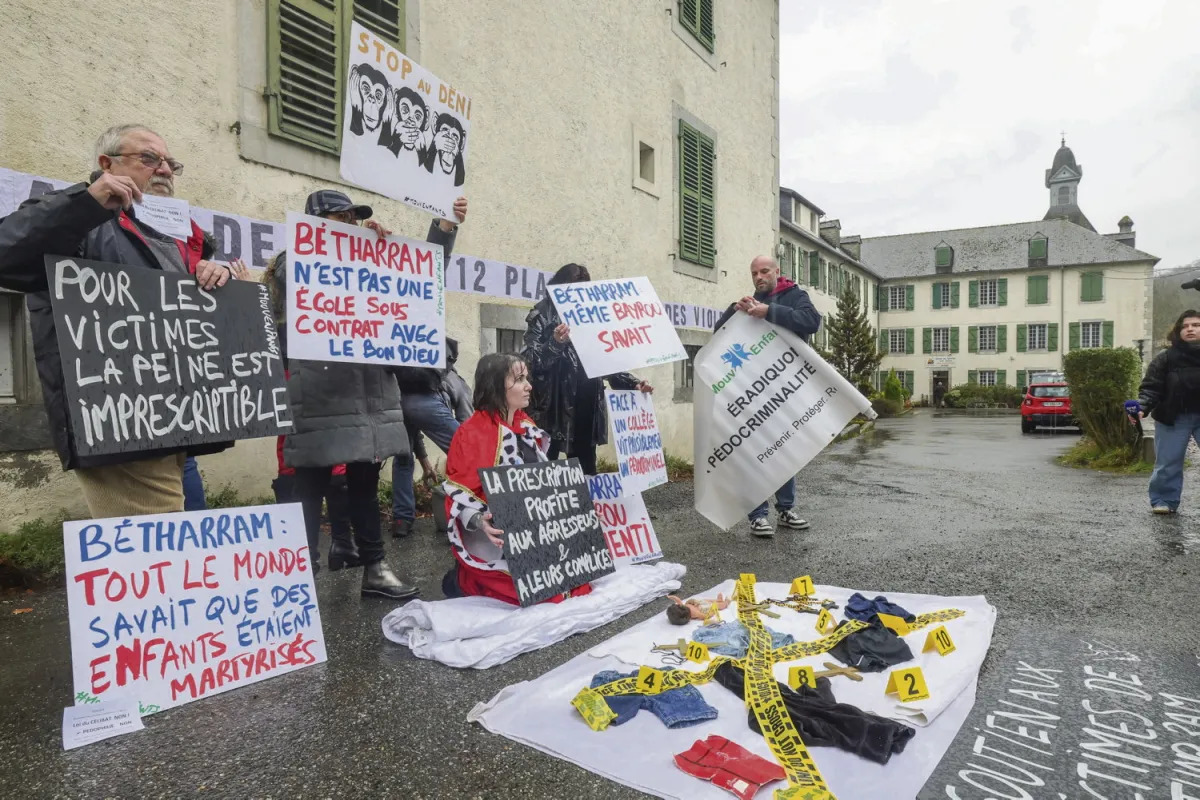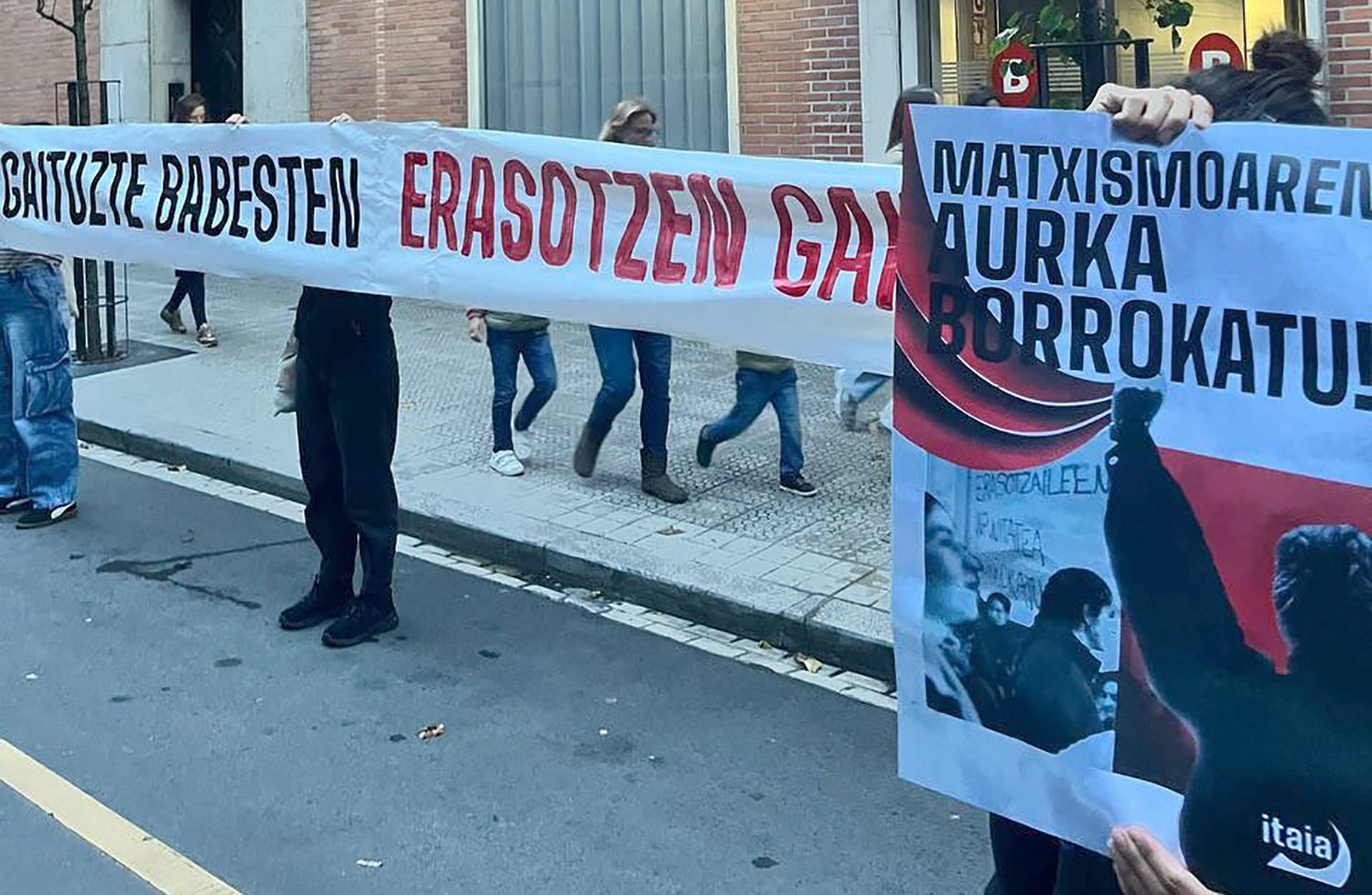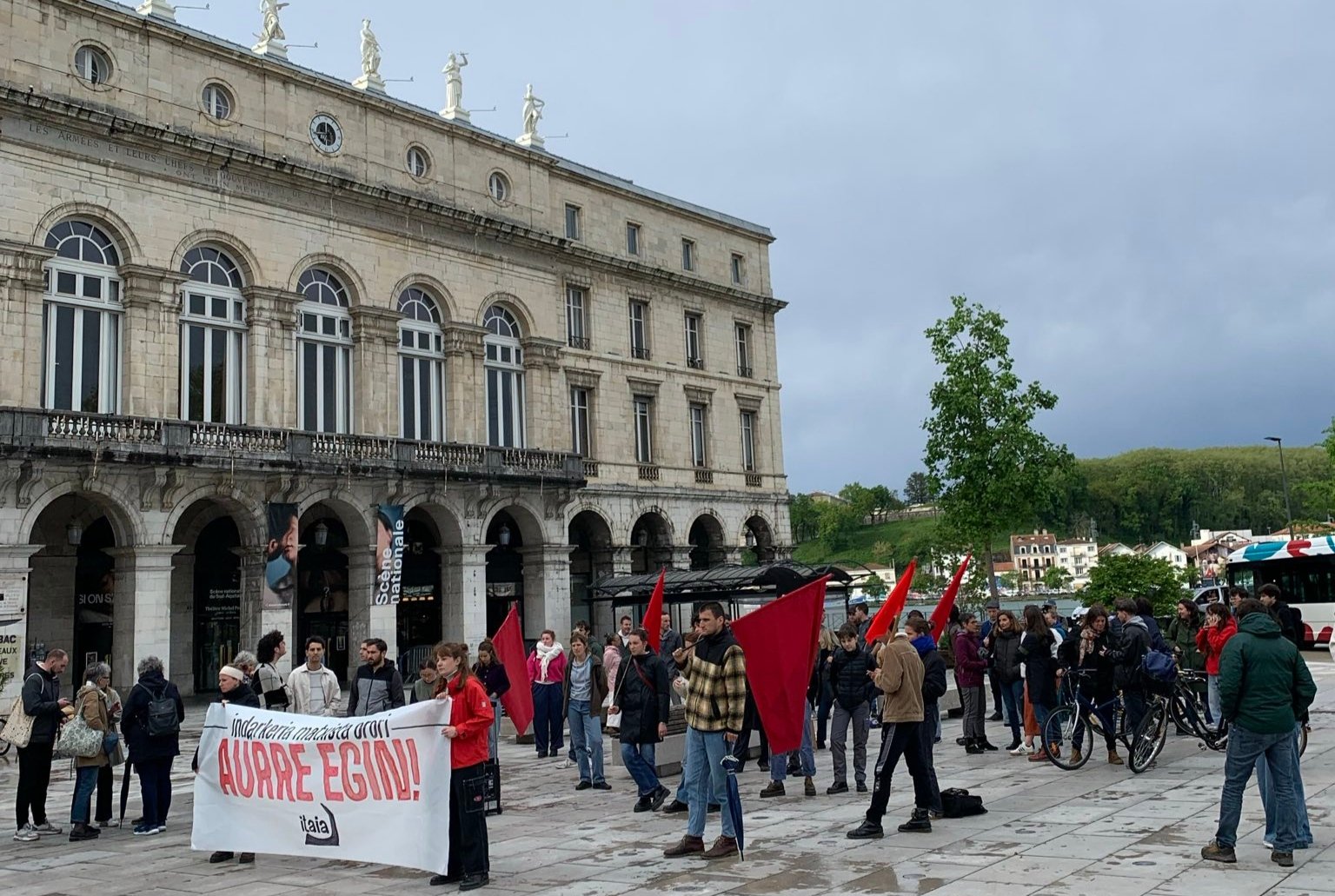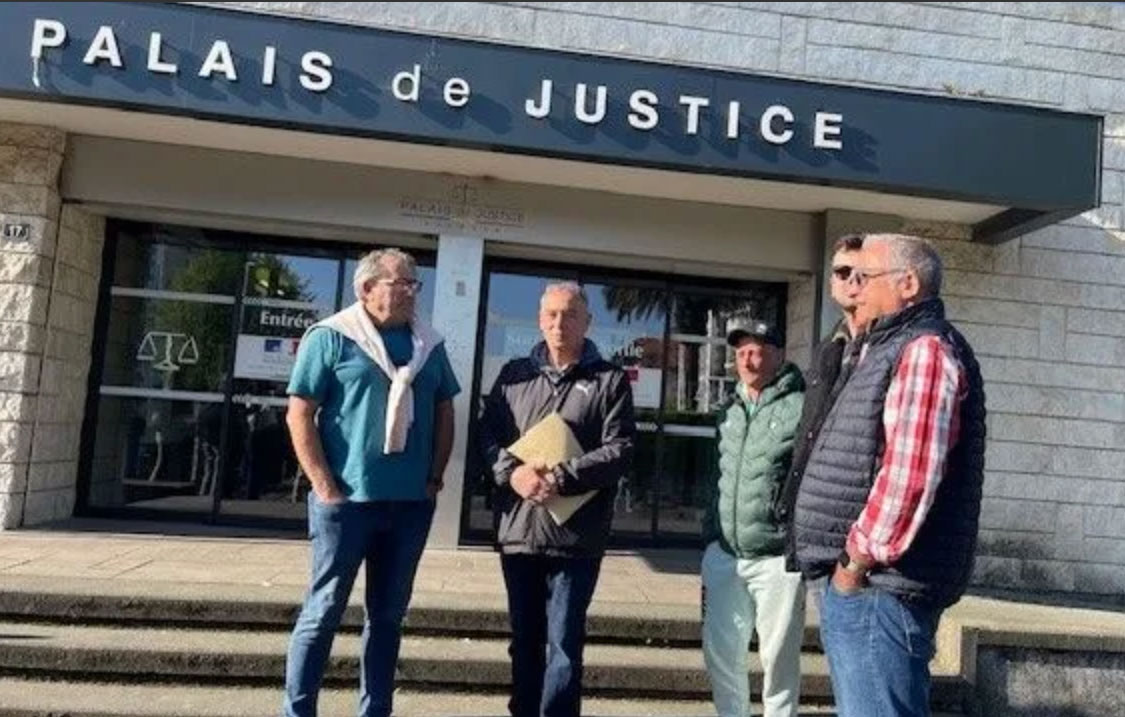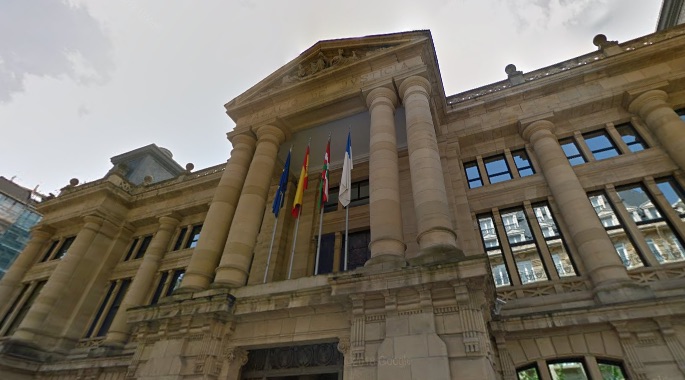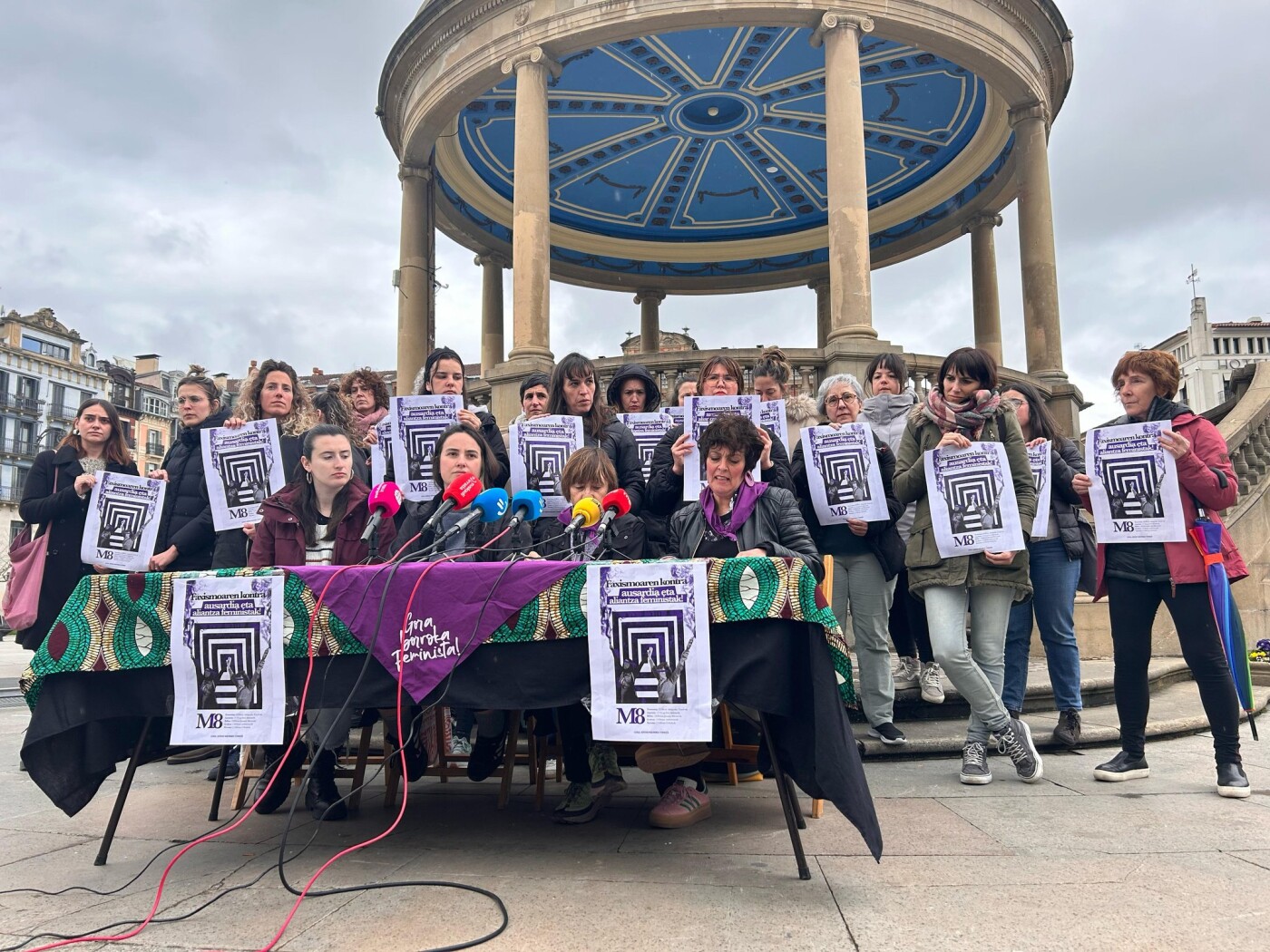"My novel is an exercise in reparation and revenge."
- In her book "What Will Be Left," Continta Publishing House has enveloped me the process of cutting off the mistreatment of her ex-husband with reports of everyday Machian violence and a delightful present that she has built together with the women of her life.
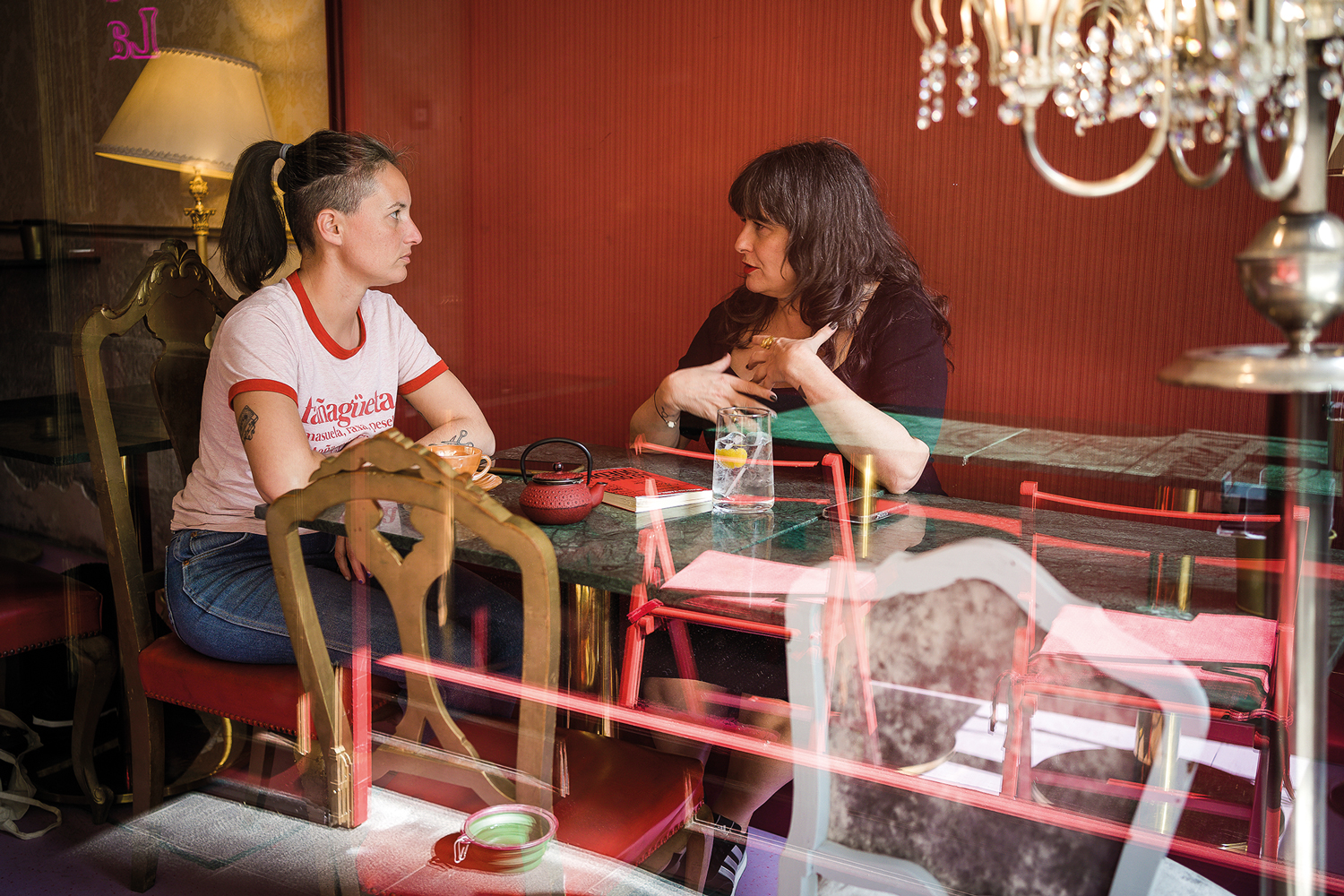
Irantzu Varela (Portugalete, 1974) has raised awareness of male violence and the right to self-defence in eleven formats: The blog Faktoria Lila (which brought together I am no longer that in fanzina), the documentary He never hit me, the videos of El Screw, the articles of Pikara Magazine, the humor monologists Villana and Señoricidio... He has now used the autobiographical novel, although he has stressed that it is "the first thing he has created without a pedagogical purpose".
You've called your novel "Autopornography." What makes you most embarrassed?
I only feel shy when it comes to expressing love. My main concern is that people who love me suffer from reading certain things. But the intention of the book is to show that, if all of this happened to me, I'm happy, happy and quiet. I've tried to turn pains into patrimony, creating something that reaches people. I wrote some passages when I was hurt, but I couldn't publish the book until the wounds were closed.
How have you managed to close the wounds?
I separate the wounds and the scars. Time does not cure anything; I have needed a lot of feminism, tertulias, friends and therapy. The keys are to offend and understand the context in which I explained why I stayed. I wrote the book when I guaranteed that I would not go back to ocurrir.Mi mother reminded me once of the suicides
of Sylvia Plath and Virginia Woolf to argue that feminism makes us unhappy. What would you answer? Designer
Zuzu Angel stood up against the Brazilian military dictatorship after his son’s forced disappearance, and said: “How good we live simulating that nothing happens.” For many women, an individual survival strategy is to pretend that they don't see what's happening to them. I often say that when a woman does not obey a man, she reminds other women of her obedience. Feminism gives you clarity and the most painful thing is to review your life: friendly, family, sexual relationships... That creates a lot of anger, but I think we're learning how to manage rabies well.
How is the stigma of the victim deactivated?
Fortunately, our way of talking about our experiences of violence has taken a dramatic turn over the last eight years. We used to do it with shame, in spaces of intimacy, now we're able to share between laughter. I used to write about it when I was drunk or especially agitated. I was embarrassed to recognize what happened to me as an adult, even though I had a feminist background. Today I have learned to share reflexively, rather than vomit, and many reply “It has happened to me too”. If it hasn't happened to you, you've had extraordinary luck or maybe you haven't made a critical reading of your life. Two psychologists told me that the protagonists of my documentary spoke as victims of torture. In both cases, we have built a society that has delegitimized these violence, so it makes us less embarrassed to bear witness to the victims. It has been personal and collective work.
Ana Requena explains in her book Intensas that women socialize us in the sense of guilt and men in anger. You claim rabies.
It's the most revolutionary emotion because it forces you to react. On the contrary, sadness and guilt sink you. The book is an exercise in repairing and venganza.En the book
tells that it had two husbands: one good and one bad. Why don't you talk about the good husband?
Do you really think the world needs more original type stories? Can you imagine a feminist gypsy writing a book about non-gypsy men? Trying not to be an exploiter does not do you well, but human and dignified.
On the contrary, the men of your family feel good.
I have some great men around me, I have mentioned them in gratitude. My father has done a great job of understanding what his daughter, his wife and his sister-in-law say. In 40 years, like other parents of their friends, it's changed a lot. There are others that have not changed or that are going to get worse.
The book shows the famous Señoro. In particular, easily identifiable tertullians. Have you had any doubts or fears when pointing them out?
I wanted to make his name and surname a footnote, but fortunately my lawyer has not left me. These are stories that I can support anyone. Someone who did something punctual at the time called me to take responsibility, and I was happy. If someone reads the book, they feel challenged and think, “How was I so wrong!”, great. But the insects that pop up matter to me a little bit. One policeman told
you that half of his colleagues hated you and the other half would touch your skin with you. I've seen a dynamic of attractiveness and hatred towards many feminists. At
the time, I was younger and leaner. Surely it was an attractive villain for them, yes. Now I've come out quite a desirable way for a straight man and they continue to hate me. The hypersexualization of women is a way of deactivating us politically. If they do not classify us as “fucking” they take us from the category of woman. I've been told I'm not violable! But it's a lie: rape is not about sexual desire, it's about power. There are insects that rape children and animals.
Do you think Me too is more attentive to harassing them?
Yes, but I don't think the turning point was Me too, but a much broader political context of feminist consciousness. Many women have developed the ability to point out these attitudes and many men have reflected. Others are fascinated because they got used to doing with impunity what they wanted: from sexist comments about our bodies, to touching and to violating without leave. Beyond patriarchal justice, what other
means do you see to denounce the Machian violence?
I believe that we must organise collective self-defence, not punitive and fair. It's hard, but we're all learning. In addition to organizing the reaction, we must think about safe spaces. I like a concept by Rote Zora: contrabiolence. They didn't kill anyone, but they did sabotage. I like the idea of forming groups of women, but we must try not to repeat the patriarchal forms, to care for the people who denounce, to avoid lynchings...
But is it possible to carry out a fair and non-punitive counterpart?
I don't know, we can at least change rhetoric, like when we go out in torches at night demonstrations. First of all, I believe that all women, nonbinary people and LGBTBI should learn feminist self-defense to begin to respond to the assaults by setting aside fear. The aggressors, in view of their confrontation, communicate with each other. I would say that to some extent the night dynamic has changed: In the 1990s, we were shocked and we were shocked, but now we rebuke, if not a punch. However, every night we have to defend ourselves, and it is annoying that the feminists and the loggers feel straight about juerga. Will the day come when we will be able to laugh among ourselves in a hetero bar?
Some believe that the rhetoric of contradiction is dangerous because it strengthens and harnesses young men.
Assata Shakurre explained it perfectly: “In history, there is no one who has achieved freedom by calling for the morality of his oppressor.” They say that we have gone too far. Where are the aggressive feminists? Where are the men scared? There is a machist reaction on the part of those who want to live above our rights. They wanted to follow the path of their parents and grandparents, but today's girls are standing up. The Ku Klux Klan was born with the abolition of the esclavitud.En
book as part of a lineage of strong and rebellious women.
Yes. My great-grandmother threw her husband home in 1923. She was 25 years old and two sons and one daughter. My husband, at stake, was playing the sewing machine on the cards, and that was the source of money for my great-grandmother. From there I come: the revolts of mistreatment, housewives without education (with infinite curiosity), salespeople of sardines walking from Zierbena to Santurtzi or Bilbao… I have grown up surrounded by a salsa of women who have maintained their capacity for pleasure and enjoyment in front of the patriarcado.La class consciousness is
very present.
Inevitably. My father was a factory worker, and my mother was a housewife. I understood that I had to take advantage of all the possibilities of life, because those of my class did not rush them. Now I think it is legitimate to have a desire to improve life, but without exploiting anyone. In college, I realized that not everyone lived like us, that there are people with two bathrooms and a summer house. It is the responsibility of these people to understand that the conditions they have had are privileges and to use them for the benefit of all.
It claims lesbianism as a political option. Do you think it's a real solution for most women?
I mean my subjective life experience, of a woman who tried to be heterosexual until she had two husbands. The women drew me from a young age and when I had the opportunity to have a lesbian relationship, it gave me great peace of mind and great liberation. The best thing about my life is to get out of the orbit of heterosexual male desire. To say that I am a lesbian publicly seems to me a matter of responsibility, given my visibility. I believe that women who would like to carry out lesbian desire are more than we present ourselves as lesbians. What is the solution to everything? No, of course. Furthermore, I would say that political lesbianism belongs to a particular generation. I see a lot of bisexual young people who think of monosexuality as a horrific.
Allegations of hate messages he received from social media have been filed. It's discouraging.
Well, I think there's more awareness and that advancement is the law of 'Just Yes'. In any case, I have seen that the answers are triggered when it happens to obvious women who are not feminists. When a Facebook user wanted a multiple violation of Ines Arrimadas, the next day he was fired from work. However, as I have not been admitted to the proceedings, even when I have been sent videos of young girls performing felations, and that is a crime [child pornography]. You'd have to do an experiment to see what happens if, for example, a politician from the PNV picked up the messages that I get.
It highlights the phobia in the hate messages it receives. On the back of the book, you've named yourself a fat activist.
After participating in the fat book (H)love, I realized the scarce political space we give to that oppression. I just went from “I am afraid to get fat” to “I am considered fat”. Now I call myself fat and people feel inced moda.Recomiendo the book Hunger by
Roxanne Gay, is black, back and very fat. My consistency is portable, I get into the chairs, I have no trouble moving, I am attractive to many… But if I am politicized, I would change my cuerpo.En a
chapter honored to Madonna. Is aging liberating? At
age 65, he just gave the greatest concert in human history: two million people on the beach of Copacabana. It tells us: “Then I settle, I am a free old woman.” Finally, aging does not seem liberating in itself, if not because learning opportunities accumulate. You've grown up attacking patriarchy, then you disobey it, and aging is the greatest disobedience. I'm disturbed by body changes, but I know I can't fight time. I hope that your whole life will not suffer behind an ideal.
It makes it clear that from the beginning to the end of the book it is friends who save us.
Fortunately, thanks to feminism, the LGTBI and queer struggle, we have valued the chosen family or, as Violeta Assiego says, the logical family, which is not biological. I honor my friends, but also my lifelong friends outside the queer feminist bubble. They land at me because more than Irantzu Varela cares about Irantzu. Thanks to them, I have not become a mere snob.
Prentsaurrekoa eskaini dute ostegun honetan Marc Aillet Baionako apezpikuak, elizbarrutiko hezkuntza katolikoko zuzendari Vincent Destaisek eta Betharramgo biktimen entzuteko egiturako partaideetarikoa den Laurent Bacho apaizak. Hitza hartzera zihoazela, momentua moztu die... [+]
Antifaxismoari buruz idatzi nahiko nuke, hori baita aurten mugimendu feministaren gaia. Alabaina, eskratxea egin diote Martxoaren 8ko bezperan euskal kazetari antifaxista eta profeminista bati.
Gizonak bere lehenengo liburua aurkeztu du Madrilen bi kazetari ospetsuk... [+]
11 adin txikikori sexu erasoak egiteagatik 85 urteko kartzela zigorra galdegin du Gipuzkoako fiskaltzak. Astelehenean hasi da epaiketa eta gutxienez martxoaren 21era arte luzatuko da.
Matxismoa normalizatzen ari da, eskuin muturreko alderdien nahiz sare sozialetako pertsonaien eskutik, ideia matxistak zabaltzen eta egonkortzen ari baitira gizarte osoan. Egoera larria da, eta are larriagoa izan daiteke, ideia zein jarrera matxistei eta erreakzionarioei ateak... [+]
Elizak 23 kasu ditu onarturik Nafarroa Garaian. Haiek "ekonomikoki, psikologikoki eta espiritualki laguntzeko" konpromisoa adierazi du Iruñeko artzapezpikuak.
15 urteko emakume bati egin dio eraso Izarra klubean jarduten zuen pilota entrenatzaile batek.
Lestelle-Betharramgo (Biarno) ikastetxe katolikoko indarkeria eta bortxaketa kasuen salaketek beste ikastetxe katoliko batzuen gainean jarri du fokua. Ipar Euskal Herriari dagokionez, Uztaritzeko San Frantses Xabier kolegioan pairaturiko indarkeria kasuak azaleratu dira... [+]
Bi neska komisarian, urduri, hiru urtetik gora luzatu den jazarpen egoera salatzen. Izendatzen. Tipo berbera agertzen zaielako nonahi. Presentzia arraro berbera neskek parte hartzen duten ekitaldi kulturaletako atarietan, bietako baten amaren etxepean, bestea korrika egitera... [+]
Martxoak 8a heltzear da beste urtebetez, eta nahiz eta zenbaitek erabiltzen duten urtean behin beren irudia morez margotzeko soilik, feministek kaleak aldarriz betetzeko baliatzen dute egun seinalatu hau. 2020an, duela bost urte, milaka emakumek elkarrekin oihukatu zuten euren... [+]
Neska adingabeari sexu abusuak era jarraituan egin zizkiola frogatutzat jo du Bizkaiko Lurralde Auzitegiak.











